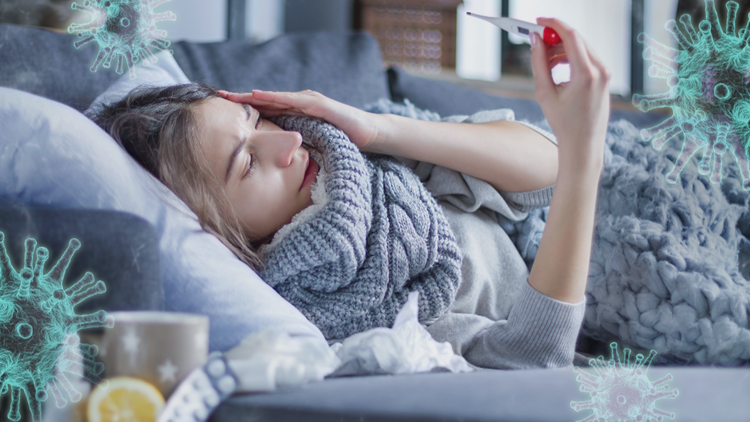CLEVELAND — Has someone in your home tested positive for COVID-19?
You may be wondering how to care for them while keeping yourself and others safe. The Cleveland Clinic HealthEssentials blog is offering guidance on how to care for your sick family member while limiting exposure to the rest of the household.
For starters, the person who is sick should be self-isolating. This means staying in a separate bedroom and using a separate bathroom if possible from the rest of the household. "Right now, we're seeing a lot of infectivity in homes, where someone who's sick infects other people they live with," says James Merlino, MD, Chief Clinical Transformation Officer at the Cleveland Clinic.
"If you have to be in close proximity to the person who is sick, you can all wear masks. But trying to keep people separated as much as possible is the best thing you can do."
Another tip is to create as much air circulation as possible in your home by taking steps like opening your windows if it is warm enough to do so.
In terms of caring for a sick family member, you can help by checking on them often and watching for warning signs of trouble breathing, persistent chest pain and fatigue.
You can also help by making sure they have medications such as pain relievers, cough suppressants and fever reducers to help keep them comfortable. And be sure the sick person is drinking lots of fluids and resting as much as possible.
You can protect yourself within the household from a sick member by avoiding close contact with the person who is sick. You should be cleaning and disinfecting frequently-touched surfaces every day, which includes doorknobs, faucets and light switches.
Lastly, you should never share personal items such as cups, dishes and eating utensils with the person who is sick. All kitchen utensils should be washed with dish soap and hot water to ensure disinfection. According to the CDC, it is fine to wash their laundry along with yours but they recommend that you wear disposable gloves and use warm water.
"COVID-19 often gets in through the back door - it spreads when someone loosens up on precautions or when a family member isn't careful," said Dr. Merlino. "So we have to be very vigilant with these precautions."



